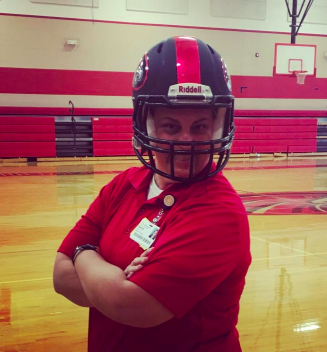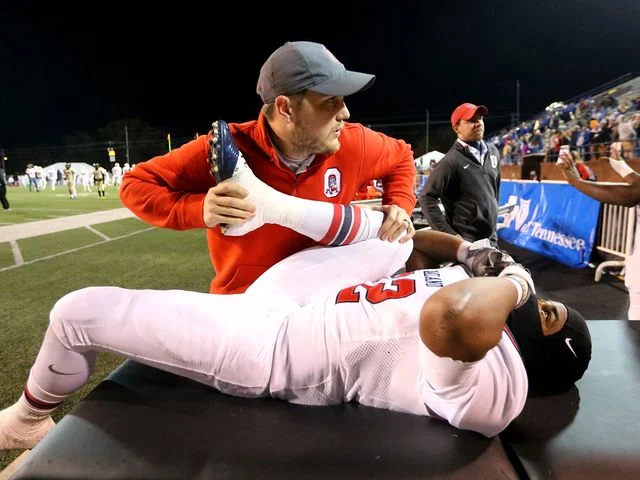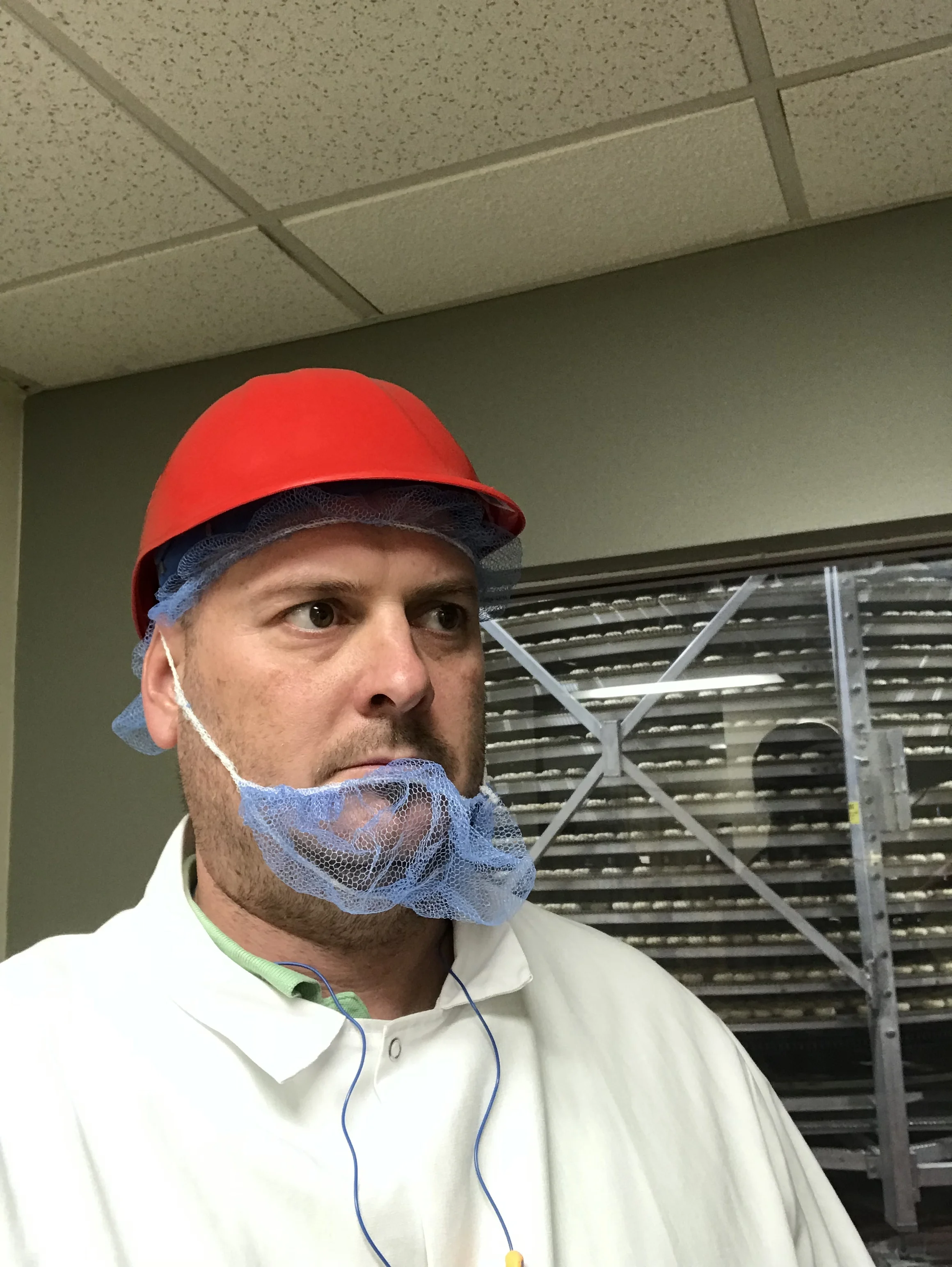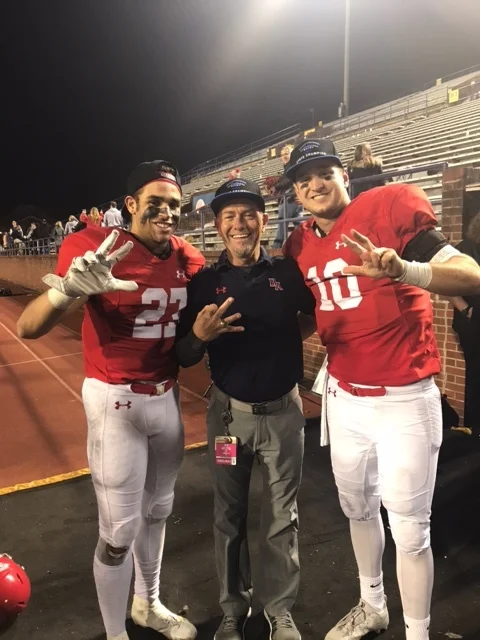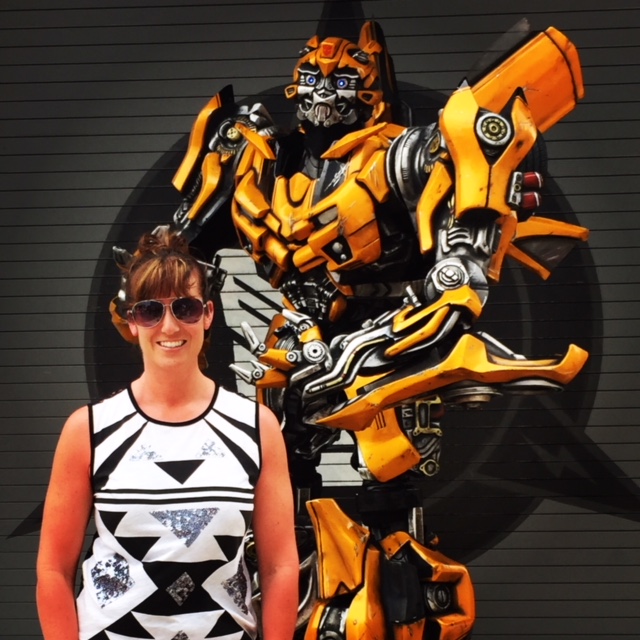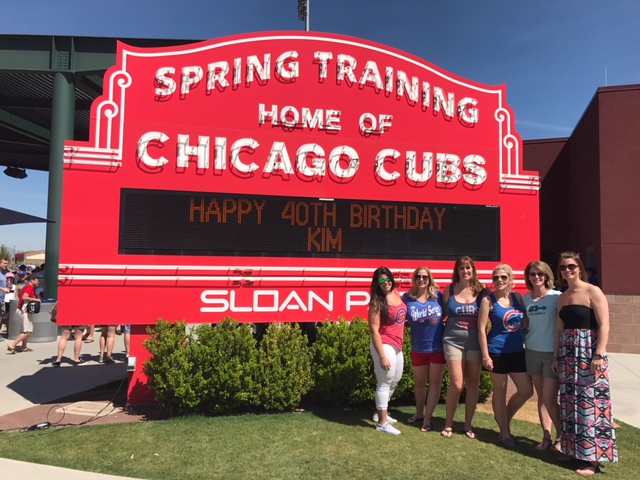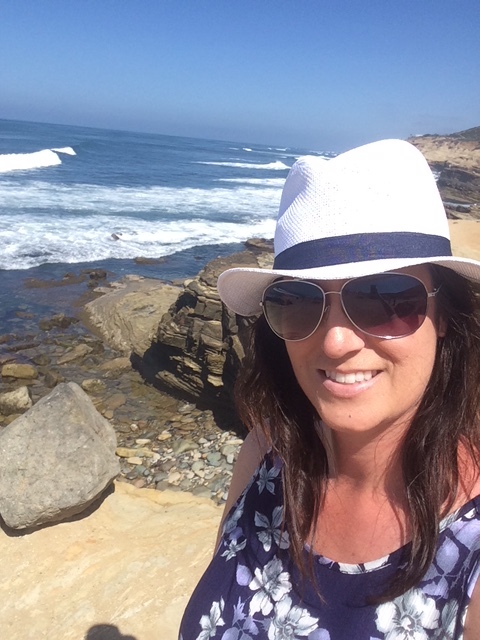Lead Athletic Trainer- Lausanne Collegiate School
“Can you get the athlete off the field a little faster please? If it is broke on the field, it’s going to be broke on the sideline”
How did you decide on Athletic Training as a career?
I decided on Athletic Training due to a realization that there was no profession for cheer. I was a varsity athlete and noticed the profession of athletic training through this relationship with the college and programs. I enjoyed exercise science as well as the freedom that the athletic environment brings. As I explored this profession I thought this would be a good one to continue to work in athletics, learn more about sports medicine and help serve other athletes in their endeavors
Did you play sports and did that shape how you view Athletic Training?
I grew up swimming and playing golf. I would swim year-round and play golf seasonally. In high school, I played on the golf team, however, our high school was successful with players. Many went on to play professional golf or teach golf. I could never break into the 5 man lineup. My senior year I was introduced into cheer with other varsity athletes that did cheer in the off season to stay in shape. We won a national championship and this propelled me into a full scholarship at the University of Memphis.
We did not have athletic trainers at our high school during this time. We would tape ourselves, try to assess injuries and manage them the best that we were capable. This probably kicked started an interest into sports medicine.
How did your career start and how long were you there?
I worked as a PT Tech at Memphis Sports Therapy. A physical therapist, Joel Lyons, was a good mentor and helped shape a systematic approach to working with athletes. While I was working there, I went back to school at U of M in Human Movement Sciences to work on some post graduate studies. During this time, I also started working with U of M athletic trainers and formally started my internship that would eventually advance me to sitting for my Certification. I worked under Butch Frazier and Eddie Cantler with football and other sports at U of M. I collected my internship hours and took my certification test and passed it in 1996. I remember traveling to Colorado Springs for the weekend and took my NSCA CSCS certification on Friday and then flew to Dallas, TX and took my NATA certification on Saturday.
How did you transition into your next job? How long were you there?
After I received my certification I was hired by the same company, Memphis Sports Therapy (now Physiotherapy Associates) as an athletic trainer. I proceeded to work in the clinic, rehabbing patients. I remember having a fairly large load of patients daily. I would see 20-30 patients a day. The physical therapist would evaluate the patients and then hand them off to me. I would treat them and write the notes of their progress. I was well versed with Isokinetics as well as the other apparatus we had in the clinic and we would teach the PT students on rotation.
I then started to return to my alma mater and work with their athletes in the evening. I started covering all of their games and teaching them what an AT could do for them and their athletes. I was able to show the company how athletic training would benefit them as a whole. I was promoted to Director of Sports Medicine and subsequently, I received favor from the President of Physiotherapy Associates and wrote the guidelines of the PT/ATC team relationship for our corporation. I was introduced to Bob Donatelli, PT who worked with Physiotherapy Associates in other states. He was on the PBATs committee and helping with various research. He was developing relationships with the professional tennis. He was taking care of the Champions Tour that had all the well known tennis players. Through these relationships, we developed a program to work with and assist the ATP.
They would send me to assist the ATP overseas. I would arrive during the weekend and receive all the supplies and set up the area where the athletic training room would preside. Monday and Tuesday would be pre-qualifier rounds. I would cover these alone. By Wednesday, the Physiotherapist would arrive. We would cover the bulk of the tournament together and treat the athletes. Friday I would head out to another location and the Physiotherapist would stay until Sunday when finals were complete.
How did mentorship play in your professional growth? Does a mentorship play an important role in the AT profession?
I learned so much from the people I encountered. Butch Frazier, Eddie Cantler, Joel Lyons, Bob Donatelli, Per Bascholt (a physio in Europe) and other osteopaths and other physiotherpists with the ATP tour. All of these people poured into me. At the time I didn’t realize, but they were my Mentors. I am appreciative of the time they gave me. It opened my eyes to health care universally. I was able to see how health care is done in Europe, South America, and the USA. It gave me a larger vision.
After leaving Physiotherapy Associates I joined Susan Stralka at Baptist rehabilitation. Susan is another well published PT and another good mentoring person in my life. I was hired as Director of Sports Medicine for Baptist Rehabilitation Hospital and we continued to grow the program and add schools and athletic trainers.
I worked for this organization until 2009. Through this whole process of my career I was able to establish relationships with great physicians, such as Tim Krahn, Randy Holcomb, Dean Jameson, Kenneth Weiss, to name a few. These doctors also provided a mentoring relationship over the years. They were consistently the team physicians for the schools that we were covering. I learned so much with all of these physicians. Even today, we are constantly challenged with these relationships and I am so grateful for their contribution into my life and profession.
June 1, 2009 I was hired as Director of Sports Medicine for OrthoMemphis. I had worked with these physician for 10-15 years but not for them. We built a program to the height of 17 athletic trainers and 12 schools/ programs we covered. I held this position until last year when I stepped back to take a break from the demands of being a director for many years. I enjoy being a head athletic trainer for Lausanne Collegiate School. I have been able to build a program and facilities at this school and it is fantastic to just focus on athletic patient care. Yes, mentors are still needed today. This is nothing more than each of us recognizing that we do not know it all and that we need to find someone else that we “click” with that does know something more. Reach out, get with them and ask them to show/teach you how. Most Athletic Trainers are willing to share info. I still need mentors today.
Most memorable moment in Athletic Training thus far?
I have already listed some above with the opportunities I have been given. I have traveled with our high school teams abroad as well. This was fantastic helping them compete on a larger scale. But I would have to say, most memories are the ones when you tell your athlete they can return to play. Or when you are managing an injury and the athlete is able to complete a season safely.
Advice for young professionals?
We are a service-oriented profession. In order to provide a service for someone, you have to earn the right to treat them. This is developed through relationship and trust. Value these relationships and take care of them well.
Best quote from my team physician- “Can you get the athlete off the field a little faster, please? If it is broke on the field, it’s going to be broke on the sidelines “
When not working, what do you do?
I enjoy leading worship at my local church. I play guitar, and write music with our team of creatives. I enjoy hanging out with my 2 daughters (Hannah, 24 and Kayla, 25) and my wife Cathy of 27 years of marriage.
I enjoy cycling and golf and anything to do with water (boating, sailing, scuba, fishing).
Are you a part of any committee’s?
I have been on the TSMAC committee for TSSAA, I have been a founding member and regional rep for TSSAA Weight management for wrestlers in state of TN. I have been ATC since April of 1996.
Submitted by Jennifer Dorman











